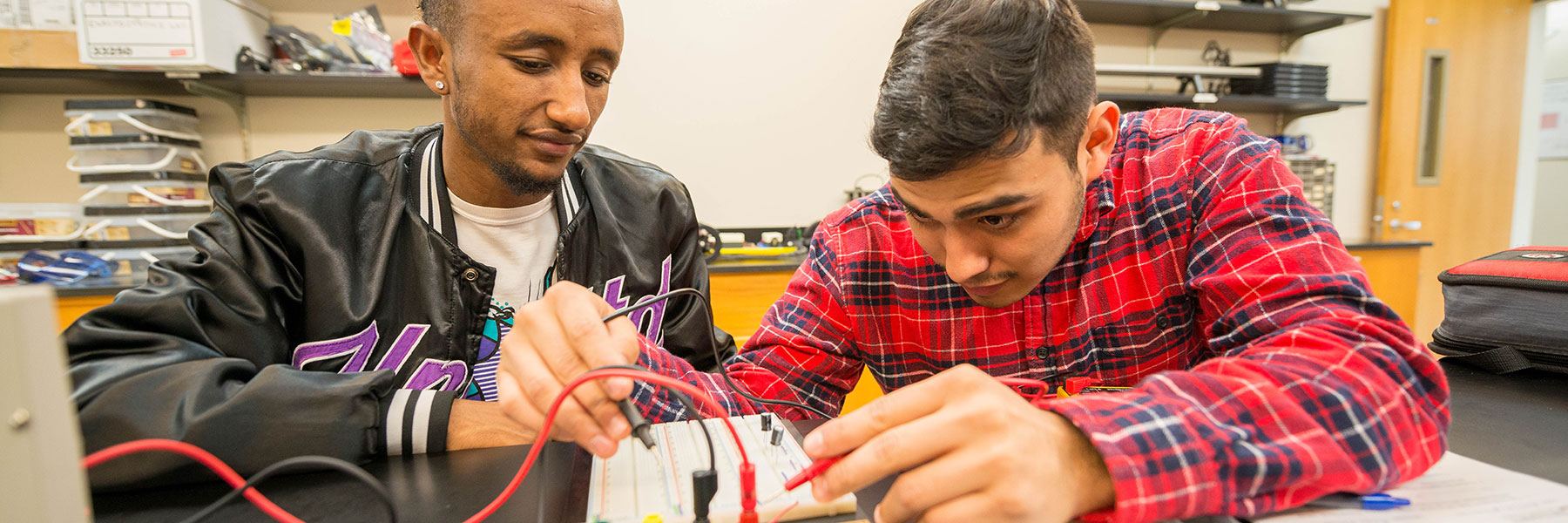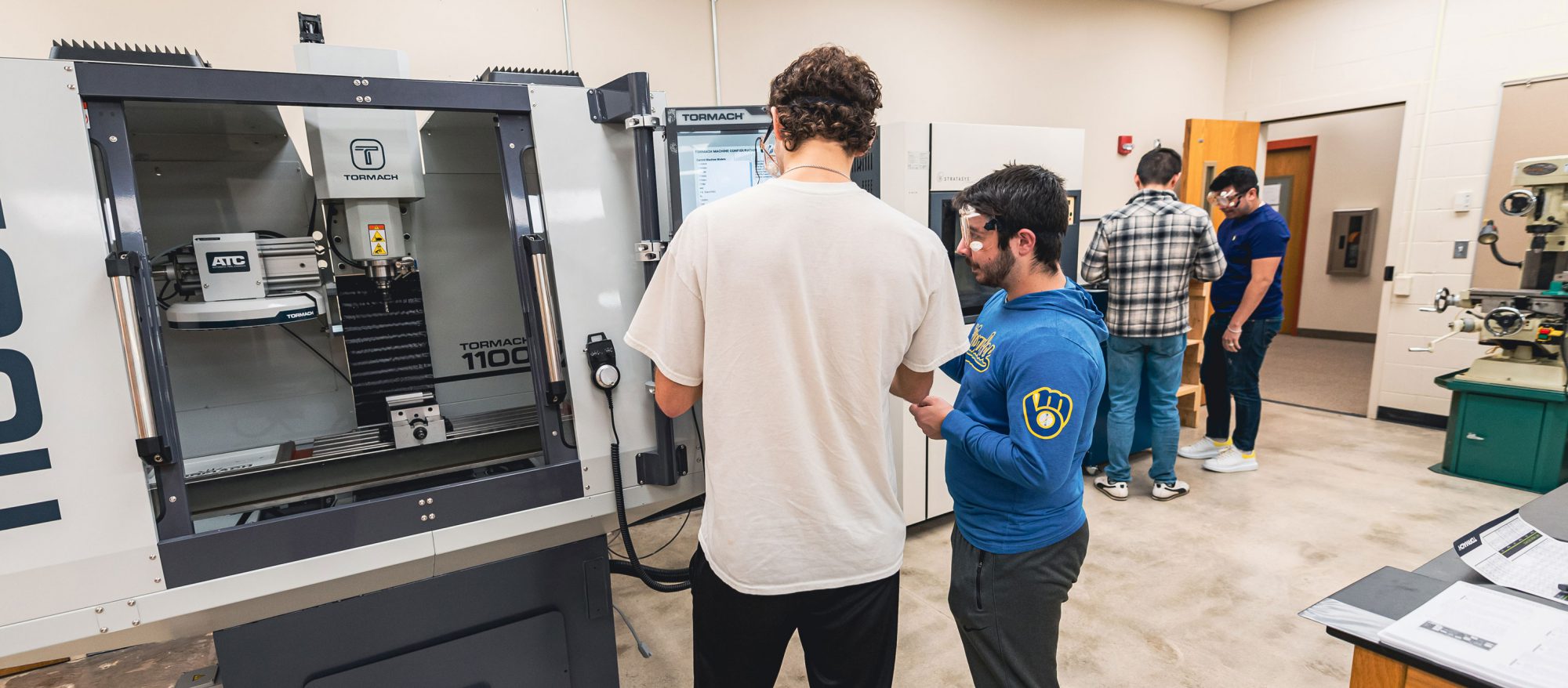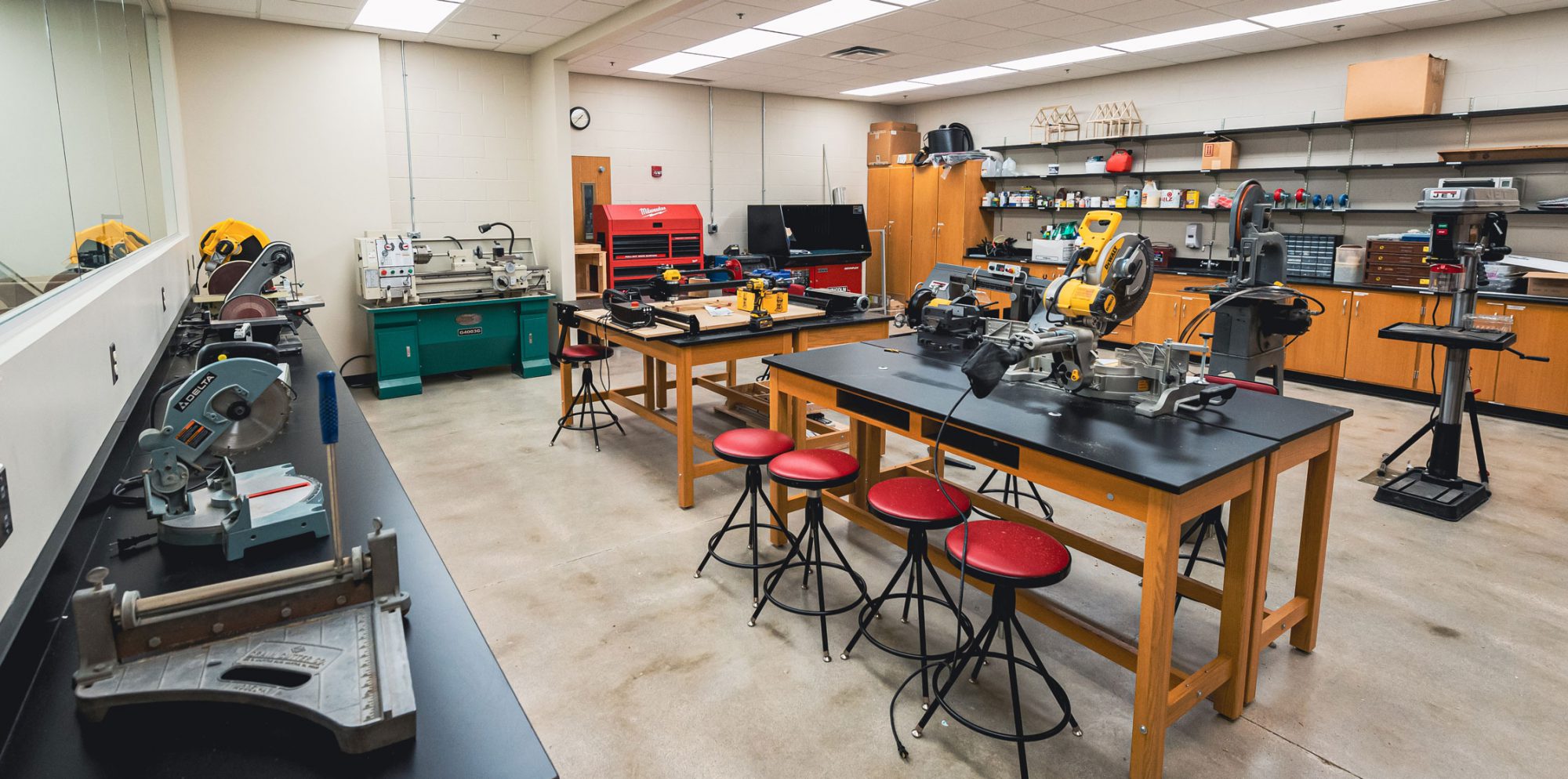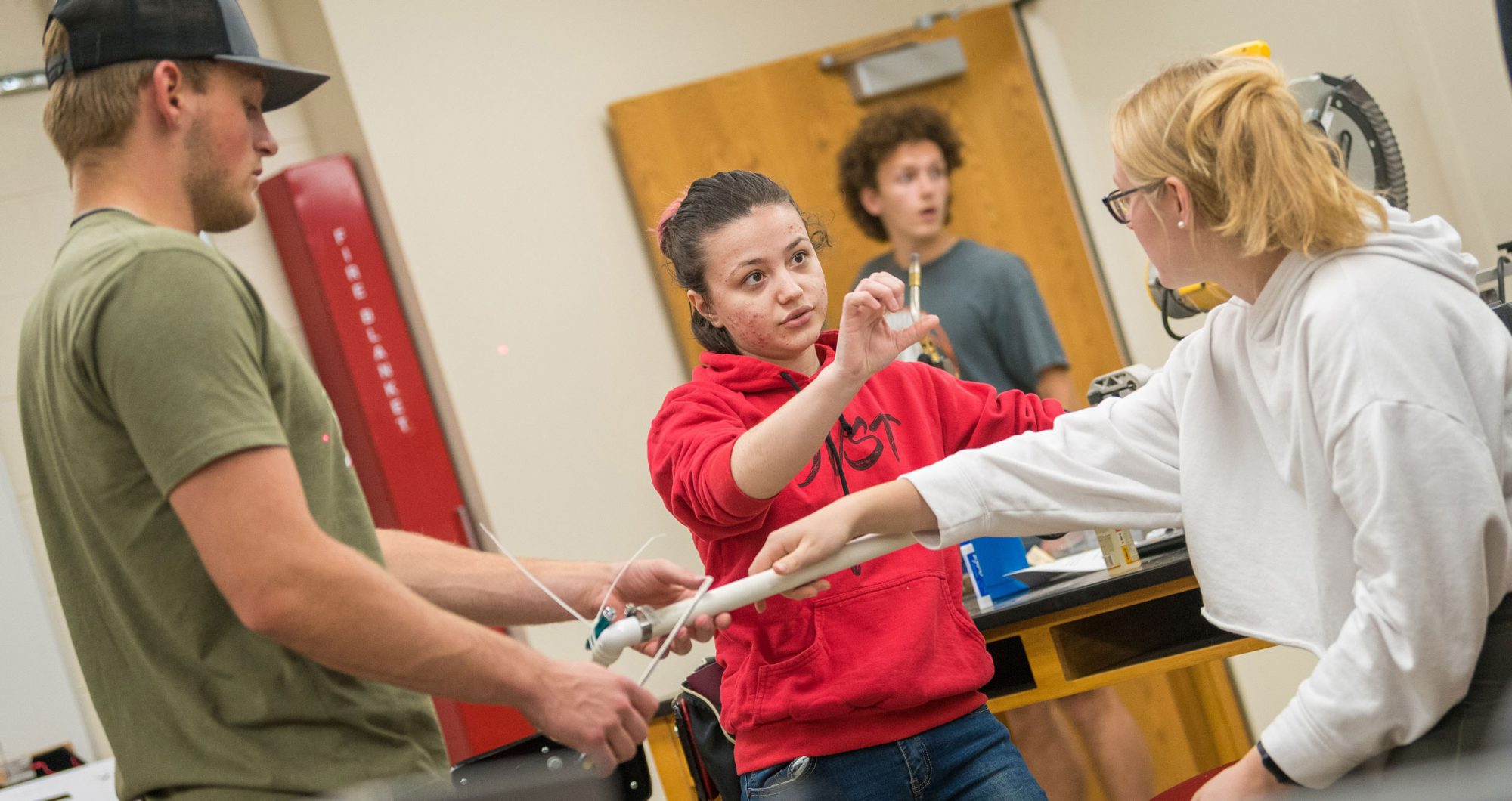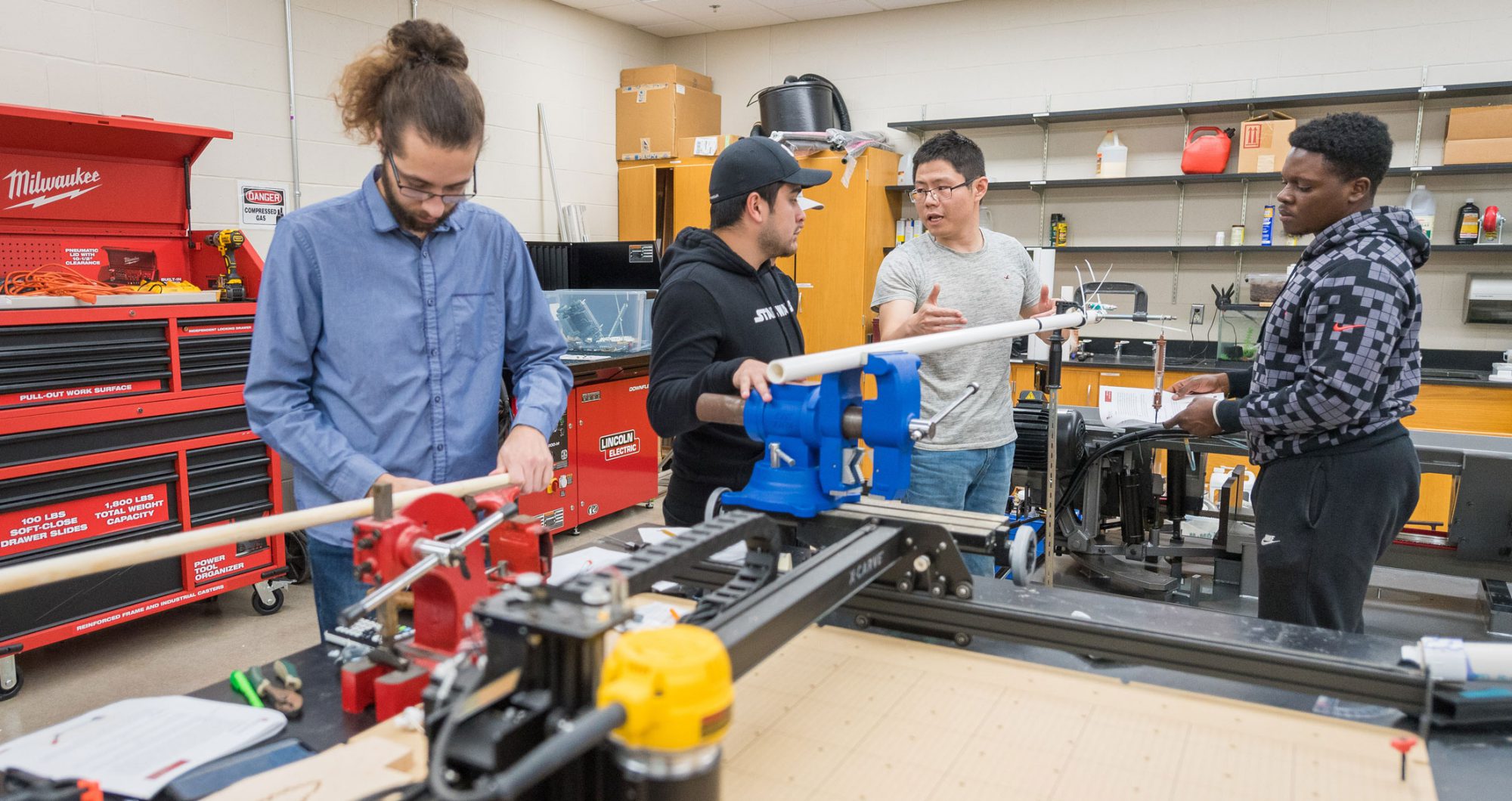Circumscribed on the rotunda of Chicago’s Museum of Science and Industry is the phrase, “Science discerns the laws of nature; industry applies them to the needs of man.” Engineering does both.
Engineering is more than designing and building things. Engineers rely on a solid foundation of science and mathematics to understand and solve problems. In today’s technology-driven society, innovative thinkers will always be in high demand. In addition, the very nature of technology requires a constantly changing and broadly diverse set of critical thinking skills. Because of its solid grounding in the liberal arts, Bethany Lutheran College is ideally suited for the teaching of these skills.
We see in Hebrews 11:10, “For he was looking forward to the city with foundations, whose architect and builder is God.” Bethany is equipped to provide our students a path on which to pursue the engineering profession under the embrace of the One Thing Needful. The program described herein includes two concentrations or tracks: biomedical engineering and mechanical engineering.
Potential Employers
- Aircraft industries
- Automotive industries
- Computer and software companies
- Construction industries
- Consulting firms
- Equipment design firms
- Foreign service
- Government agencies
- Hospitals/healthcare facilities
- Independent research firms
- Manufacturing plants
- Military
- Transportation industries
- Utility companies
The Mast, named after the mast of a Viking ship, is an open layout engineering lab in Meyer Hall, complete with updated technology and endless possibilities.
Inside The Mast is an engineering student’s playground: updated 3D printers, laser cutters, and a high-powered computer that can do complex computations, simulations, and calculations. There is also two CNC (Computer Numerical Control) machines, which are digital cutting tools. These machines are used for testing materials and electronics for a variety of engineering disciplines, such as physics and solid mechanics. There are also plenty of basic tools for cutting and drilling in the mechanics section.
Almost all engineering classes involve labs to supplement and apply what students are learning in the classroom. The Mast’s open layout and updated equipment ensures that Bethany students get the most practical, hands-on experience, and gives them an advantage for their future careers.
Student Stories
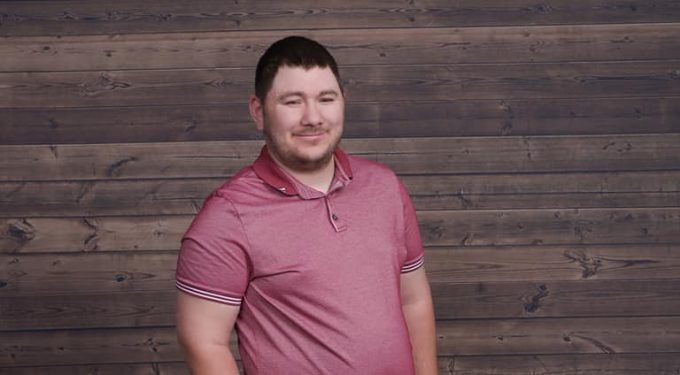
Jordan Poff (’19)
Bethany Major: Engineering Sciences Job: Truss Designer at Emmerich Wood Products, Andover, Minnesota What you do: While working here, I
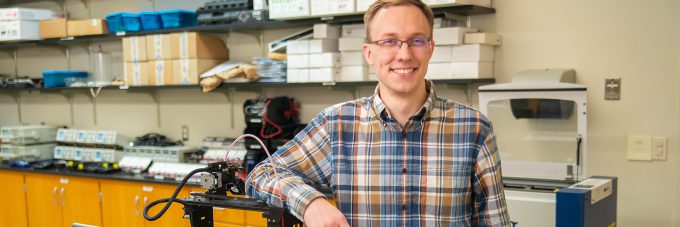
Daniel Halvorson
Alumnus Daniel Halvorson (2018) was interested in pursuing a career in an engineering field since he was young. During high

Hai Trieu Phan
Hai Trieu Phan – Class of 2018 – Czech Republic – Major Engineering Sciences What you do: I am an English
Contact for more information
Engineering Sciences Faculty
Most courses are taught by the following instructors. See also the Engineering Sciences Department.
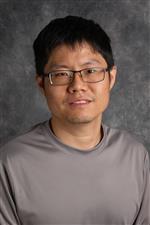 Sheng Sang
Sheng SangAssistant Professor
MH 111
507-344-7341
- Introduction to Engineering
- Statics and Dynamics
- Introduction to Electrical and Electronic Circuits
- Introduction to Fluid Mechanics andTransport Processes
- Solid Mechanics
- Engineering Thermodynamics
- Topics in Engineering: MATLAB
- Introduction to Materials Scienceand Engineering
- Introduction to Computer-Aided Design and Computer-Aided Engineering
- Engineering Sciences Internship
- Descriptive Physics and Lab
- College Physics I and Lab
- College Physics II and Lab
- General Physics I and Lab
- General Physics II and Lab
Program Objectives
The objectives of the engineering sciences baccalaureate program are to produce graduates who:
- Apply their education to address a full range of technical and societal issues utilizing intellectual creativity and responsibility.
- Participate successfully in post-baccalaureate professional activities such as graduate studies, engineering practice or other fields such as science, law, medicine, politics, business, or clergy.
- Actively seek positions of leadership within their profession and community.
- Retain the intellectual curiosity that motivates lifelong learning and allows for a flexible response to the rapidly evolving challenges of the 21st century.
- Serve as ambassadors for Christ and Bethany in their chosen vocation by demonstrating the highest ethical and professional standards.
Program Learning Outcomes
Graduates of the engineering sciences baccalaureate program will have:
- An ability to identify, formulate, and solve complex engineering problems by applying principles of engineering, science, and mathematics.
- An ability to apply engineering design to produce solutions that meet specified needs with consideration of public health, safety, and welfare, as well as global, cultural, social, environmental, and economic factors.
- An ability to communicate effectively with a range of audiences
- An ability to recognize ethical and professional responsibilities in engineering situations and make informed judgments, which must consider the impact of engineering solutions in global, economic, environmental, and societal contexts.
- An ability to function effectively on a team whose members together provide leadership, create a collaborative and inclusive environment, establish goals, plan tasks, and meet objectives
- An ability to develop and conduct appropriate experimentation, analyze and interpret data, and use engineering judgment to draw conclusions.
- An ability to acquire and apply new knowledge as needed, using appropriate learning strategies.
Entry into the Major
Note Bethany’s Program Requirements Disclaimer when planning your coursework.
A student may be admitted into the Engineering Sciences Major after completing the following requirements:
- Achieved a cumulative GPA of 2.5 or higher.
- Achieved a grade of “C” or better in ENSC101 Introduction to Engineering, MATH151 Calculus I, MATH152 Calculus II, PHYS213 General Physics I and Lab, and PHYS214 General Physics II and Lab.
- Secured an advisor within the engineering sciences major.
Major Requirements
To earn a Major in Engineering Sciences, a student must meet the following requirements:
- Achieved a cumulative GPA of 2.5 or higher in all college coursework.
- Achieved a grade of “C-” or better in the Core Requirements and Electives of either the Biomedical or Mechanical Engineering Track of the Major. A course may only be repeated once to achieve the minimum grade.
Pre-major required courses (C or higher required):
Required courses for both Biomedical and Mechanical Tracks.
Biomedical Engineering Track
Core Requirements
Students must achieve a grade of “C-” or better in the following courses:
- BIOL221 Human Anatomy and Lab 4 cr.
- BIOL222 Human Physiology and Lab 4 cr.
- CHEM113 General Chemistry I and Lab 5 cr.
- COMS103 Intro to Programming I 3 cr.
- ECON203 Principles of Macroeconomics or ECON204 Principles of Microeconomics 3 cr.
- ENSC313 Statics and Dynamics 4 cr.
- ENSC314 Introduction to Electrical and Electronic Circuits 4 cr.
- ENSC321 Introduction to Fluid Mechanics and Transport Processes 3 cr.
- ENSC323 Solid Mechanics 3 cr.
- ENSC381 Engineering Thermodynamics 4 cr.
- ENSC491 Introduction to Computer-Aided Design and Computer-Aided Engineering 4 cr.
- MATH243 Multivariable Calculus 4 cr.
- MATH260 Differential Equations 3 cr.
- SCIE320 History and Philosophy of Science or PHIL331 History of Western Philosophy II or SCIE330 Ethics in Science 3 cr.
Electives
Choose 6 credits – Students must achieve a grade of “C-“ or better:
- BIOL350 Cell Biology and Lab 4 cr.
- BIOL352 Immunology 4 cr.
- BIOL360 Microbiology and Lab 4 cr.
- BIOL491 Introduction to Human Gross Anatomy 4 cr.
- CHEM215 Organic Chemistry I and Lab 4 cr.
- CHEM323 General Biochemistry and Lab 4 cr.
- ENSC480 Topics in Engineering 1-4 cr.
- ENSC490 Introduction to Materials Science and Engineering 3 cr.
- ENSC499 Engineering Science Internship 1-3 cr.
- MATH322 Probability and Statistics II (MATH321 Probability and Statistics I is a prerequisite) 3 cr.
Mechanical Engineering Track
Core Requirements
Students must achieve a “C-” or better in the following courses:
- COMS103 Intro to Programming I 3 cr.
- ECON203 Principles of Macroeconomics or ECON204 Principles of Microeconomics 3 cr.
- ENSC313 Statics and Dynamics 4 cr.
- ENSC314 Introduction to Electrical and Electronic Circuits 4 cr.
- ENSC321 Introduction to Fluid Mechanics and Transport Processes 3 cr.
- ENSC323 Solid Mechanics 3 cr.
- ENSC381 Engineering Thermodynamics 4 cr.
- ENSC490 Introduction to Materials Science and Engineering 3 cr.
- ENSC491 Introduction to Computer-Aided Design and Computer-Aided Engineering 4 cr.
- MATH243 Multivariable Calculus 4 cr.
- MATH260 Differential Equations 3 cr.
- MATH351 Linear Algebra 3 cr.
- SCIE320 History and Philosophy of Science or PHIL331 History of Western Philosophy II or SCIE330 Ethics in Science 3 cr.
Electives
Choose 6 credits – Students must achieve a grade of “C-” or better:
- ENSC480 Topics in Engineering 1-4 cr.
- ENSC499 Engineering Science Internship 1-3 cr.
- MATH322 Probability and Statistics II (MATH321 Probability and Statistics I is a prerequisite) 3 cr.
- MATH385 Mathematical Modeling 3 cr.
To view the most recent course list and requirements for the elementary education major, please consult the Academic Catalog.
Next Steps
Interested in studying at Bethany? Scheduling a campus visit is a great way to see what we have to offer. You can meet professors or sit in on a class too! Contact our admissions office to learn more.


